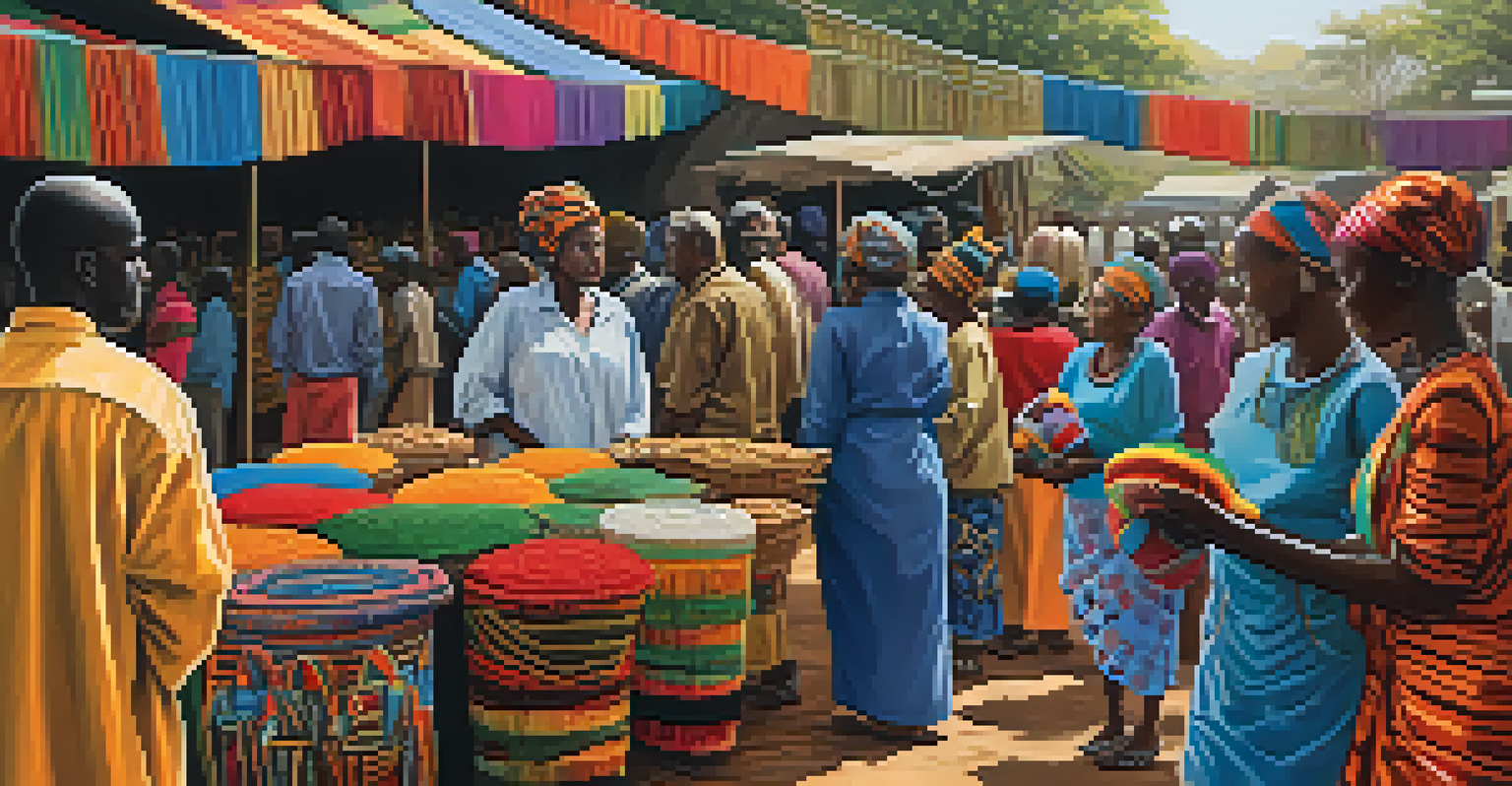The Art of Gift Giving in Different Cultures: A Traveler's Guide

Understanding the Importance of Gift Giving
Gift giving is more than just a tradition; it's a way to express feelings and strengthen bonds. In many cultures, the act of giving symbolizes respect, love, and appreciation. For travelers, understanding these customs can enhance their experiences and foster deeper connections.
The excellence of a gift lies in its appropriateness rather than in its value.
Different cultures have unique reasons for gift giving, from celebrating milestones to showing gratitude. In some societies, gifts are exchanged during festivals, while in others, they may serve as a gesture of goodwill. Recognizing the significance behind these customs can turn a simple gesture into a meaningful interaction.
Moreover, the types of gifts chosen can vary widely based on cultural norms. What might be considered a thoughtful gift in one culture could be seen as inappropriate in another. Therefore, being aware of these nuances can help travelers navigate their social interactions more smoothly.
Asian Cultures: Symbolism and Tradition
In many Asian cultures, gift giving is steeped in symbolism and tradition. For instance, in China, red envelopes filled with money are commonly given during celebrations like the Lunar New Year. The color red symbolizes luck and prosperity, making it a favored choice for gifts.

Similarly, in Japan, the concept of 'omiyage' emphasizes bringing back souvenirs for friends and family from travels. This practice is rooted in the belief that sharing experiences through gifts strengthens relationships. The thoughtfulness behind the gift is often more valued than the gift itself.
Gift Giving Strengthens Bonds
Understanding cultural gift giving enhances relationships and fosters appreciation.
However, it's important to be aware of certain taboos, like giving gifts in sets of four, which is considered unlucky. Understanding these cultural intricacies can help travelers avoid faux pas and ensure their gifts are well-received.
European Customs: Etiquette and Expectations
In Europe, gift giving customs can vary significantly from one country to another. In countries like Germany, it's customary to arrive with a gift when invited to someone's home, often flowers or a bottle of wine. This gesture is seen as a sign of respect and appreciation for the host's hospitality.
A gift, with a kind countenance, is a double present.
In contrast, the French place a strong emphasis on presentation. A beautifully wrapped gift can convey thoughtfulness and care, showing that you've put effort into the gesture. Additionally, in many Southern European cultures, gifts are often exchanged during festive occasions, reflecting joy and celebration.
However, be cautious with your choices. In some countries, like Italy, giving a clock can symbolize the end of a relationship. Being mindful of these cultural nuances will not only enhance your travel experience but also help you build positive relationships abroad.
Middle Eastern Traditions: Hospitality and Generosity
In Middle Eastern cultures, hospitality is paramount, and gift giving often reflects this value. When visiting someone's home, bringing gifts such as sweets or dates is a common practice. This act symbolizes respect and appreciation for the host's generosity.
Moreover, the wrapping of gifts can carry significance as well. Gifts are often presented in elaborate packaging, which demonstrates thoughtfulness and care. In some cases, people may even refuse a gift initially as a sign of humility, so it's important to insist politely before the gift is accepted.
Respect Cultural Nuances
Being aware of cultural customs and taboos ensures gifts are well-received and meaningful.
However, be aware of cultural sensitivities. For instance, avoid giving gifts that are too extravagant, as they may make the recipient uncomfortable. Understanding these customs can enrich your travel experience and open doors to meaningful connections.
African Cultures: Community and Connection
In many African cultures, the act of gift giving is deeply rooted in community and connection. Gifts are often given to strengthen relationships and show support during significant life events, such as weddings or births. This communal approach highlights the importance of togetherness and shared joy.
Additionally, handmade gifts or items that reflect the local culture hold significant value. For example, traditional crafts or textiles can be appreciated not only for their beauty but also for the story they tell. This emphasizes the thought and effort behind the gift, making it more meaningful.
However, it's essential to consider the context of your gift. In some cultures, giving gifts to individuals rather than the community can be frowned upon. Being sensitive to these cultural dynamics can foster deeper connections and mutual respect during your travels.
Indigenous Cultures: Respecting Traditions and Values
Indigenous cultures around the world often have unique perspectives on gift giving, emphasizing respect for the land and traditions. In many cases, gifts are not just material items but are symbolic of a deeper connection to nature and community. For instance, in some Native American cultures, giving gifts made from natural materials reflects gratitude and respect for the Earth.
Additionally, the act of giving can be a ritualistic practice, often tied to storytelling or sharing knowledge. Gifts may be accompanied by stories that convey cultural lessons, enhancing the value of the exchange. This aspect highlights the importance of understanding the cultural significance behind the gift.
Personalized Gifts Matter
Thoughtful, personalized gifts that reflect local culture can create lasting connections.
However, it's crucial to approach these customs with respect and sensitivity. Misunderstanding or appropriating indigenous practices can lead to disrespect. Engaging with these cultures authentically can foster meaningful relationships and enrich your travel experience.
Tips for Thoughtful Gift Giving as a Traveler
As a traveler, being thoughtful in your gift giving can leave a lasting impression. Start by researching the customs and traditions of the place you're visiting; this knowledge can guide your selection process. Consider local products or handmade items that reflect the culture, as these can be both meaningful and appreciated.
Additionally, personalizing your gift can add an extra touch of thoughtfulness. A small note explaining why you chose the gift can enhance its significance, showing that you care about the recipient's culture. This effort can foster goodwill and strengthen your connections.

Lastly, always be respectful of the local customs surrounding gift giving. If you're unsure about what to give or how to present it, asking locals for guidance can be a wonderful way to show respect and learn more about their culture. This approach can turn a simple gift into a memorable gesture.